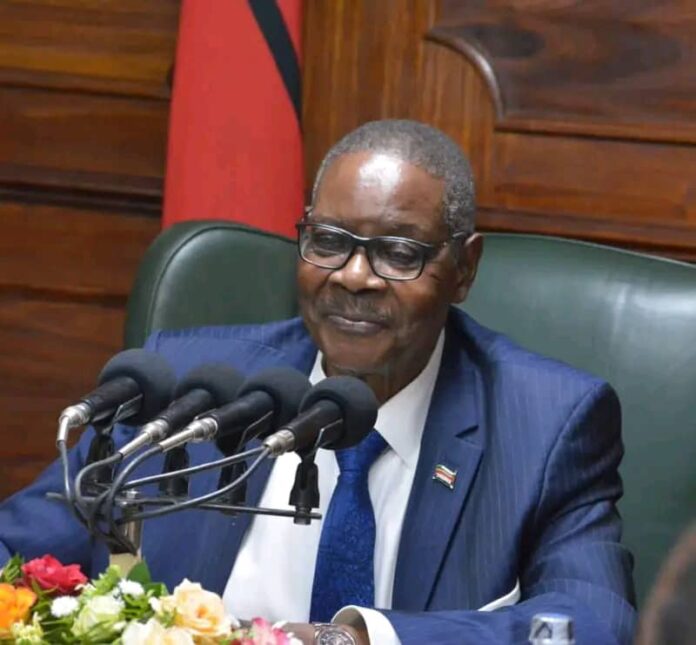By Wadza Botomani
In what should be the honeymoon phase of his dramatic political comeback, President Arthur Peter Mutharika has chosen to break with tradition by absenting himself from national Remembrance Day ceremonies, instead delegating his ministers to represent him at events across the country.
This decision has sparked concern among political analysts and citizens alike, raising fundamental questions about whether this represents a routine exercise of presidential power or a failure to fulfill core constitutional and symbolic duties. The 85-year-old leader, who secured a convincing electoral victory in the September 16 polls, has opted to remain conspicuously absent from this significant national event.

The President delegated Jane Ansah to Zomba, Enock Chihana to Mzuzu, and Navicha to another ceremony, leaving Malawians with an information blackout as to the reasons behind his decision.
Under Malawi’s Constitution, the President serves as both Head of State and Government, bearing the responsibility to provide executive leadership in the interest of national unity. While the constitution does provide for delegation of functions, the critical question remains whether certain symbolic duties are so intrinsically tied to the office that their delegation constitutes an abrogation of fundamental responsibility.
The presidency is not merely an administrative office but the nation’s highest unifying symbol. When it comes to events that commemorate national sacrifice and identity, the physical presence of the President carries profound significance that cannot be fully transferred to surrogates.
This is not the first time Mutharika has employed strategic absence from public events. During his campaign, his limited appearance at political rallies was described by supporters as a calculated strategy. However, governing requires different norms than campaigning. What might be excused as political gamesmanship during an election becomes more concerning when applied to the solemn duties of national remembrance.
What makes this situation particularly worrying is the complete information blackout regarding the President’s reasoning. In a healthy democracy, citizens have a right to understand material decisions made by their leaders, especially when those decisions break with longstanding tradition. If the President had pressing state business or legitimate health concerns, straightforward communication would have demonstrated respect for the public’s right to know.
The silence, however, fuels speculation and undermines the principles of an open, accountable, and transparent Government. Mutharika himself recently challenged his newly sworn-in cabinet ministers to work with competence and integrity. These standards must apply equally to the president, particularly regarding communication and accountability for decisions that affect national unity.
To understand the gravity of this absence, one must appreciate what Martyrs’ Day represents. This national holiday honors the political heroes who gave their lives in the struggle against British colonialism. It is a powerful reminder of the bravery and determination of those who fought against colonial oppression and is deeply woven into the fabric of the nation’s history. When the President—who literally stands on the shoulders of these sacrifices—chooses to absent himself without explanation, it risks diminishing the significance of this national ritual and the sacrifices it commemorates.
President Mutharika inherits a nation facing severe challenges and has pledged to fix this country. However, leadership in times of crisis requires not only administrative competence but also symbolic stewardship that reinforces national unity and purpose. The new administration has moved swiftly on economic appointments, demonstrating an understanding of practical governance needs. Yet symbolic leadership matters equally, particularly for a president who vowed to provide renewed leadership. The public trust extends not only to policy decisions but to the symbolic duties that reinforce national identity.
While delegation is sometimes necessary, the decision to break with tradition without transparency demands greater accountability. President Mutharika owes Malawians an explanation. The “warm heart of Africa” deserves leaders who honor both the practical and symbolic dimensions of their office with equal commitment and transparency.



